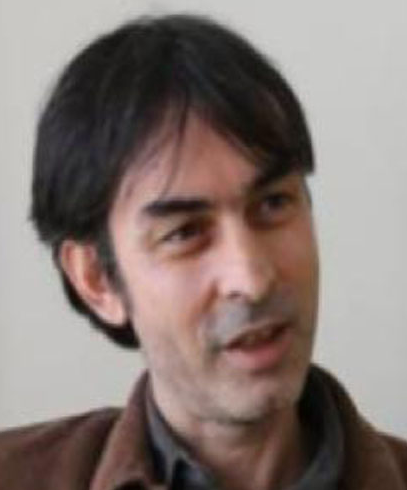
Erdoğan bırakır mı?
O yönetmeyecekse niye var bu rejim? Her konuda ‘u’ dönüşü yapabilir, dün söylediğini bugün reddedebilir fakat, bulunduğu konumdan taviz veremez Erdoğan. Esneyemeyeceği yegane yer burası. Verirse rejimi de biter. Sonrasının iyi mi kötü mü olacağını tamamen toplumun siyasal konumlanışının belirleyeceği bambaşka bir sürece evrilir ülke.
Recep Tayyip Erdoğan, 31 Mart seçimlerinin kendisi için bir ‘final’ olduğunu söyledi. Teknik olarak doğru. Kural değiştirilmezse, Anayasa’ya göre 2028’de aday olamıyor. Hukuki olarak kendi keyfine, isteğine bağlı değil yani. Peki Erdoğan gerçekten bırakır mı? 31 Mart yerel seçimlerinde herhangi bir belediye için aday olmadığı halde, görev süresinin bitmesine daha 4 yıl varken, şimdiden “son seçimim” deme ihtiyacını niye duydu?
Soruların yanıtını tartışmadan önce geniş bir parantez açıp, İletişim Yayınları’ndan yeni çıkmış bir kitaptan bahsedelim biraz. Adı ‘Sahraaltı-Siyaset ve Yaşam.’ Afrika üzerine çalışan akademisyen Doç. Dr. Volkan İpek’in yazdığı kitapta, Sahraaltı Afrikası’ndaki 49 ülkenin kolonyalizm sonrası politik yaşamı tek tek inceleniyor. Başta İngiltere olmak üzere Avrupalı devletlerin 1960’lardan itibaren sömürgeci yönetimleri ‘yasal’ olarak kaldırmasından bugüne aşağı yukarı bütün ülkelerin ana siyasi gündemi, seçimler ve anayasa tartışmaları oldu hep. Bu iki başlığın altında etnik kırımlardan darbelere, iç kavgalardan bölgesel çatışmalara uzanan kanlı bir liste duruyor elbette.
Kitap her ülkeyi özel koşulları içinde inceliyor ama toplamına bakıldığında, bambaşka bir iktisadi ve siyasi düzen hayali taşıyan Burkina Faso’nun önderi Thomas Sankara gibi birkaç isim hariç, liderlerin tamamının gayesinin ‘kutsal seçim sandığından’ çıkardıkları rejimlerine uygun bir anayasa tasarlamak olduğu görülüyor. Her seçim, bir de anayasa vaadi veya değişikliği ile beraber geliyor. Seçim sandığından çıkan onay, anayasayı değiştirmenin ehliyeti sayılıyor. Ve neredeyse tamamı dönüp dolaşıp aynı çıkmazda düğümleniyor: Bir kişi en fazla kaç defa seçilebilir?
Hukuk diliyle ifade edilmiş bu soruyu, siyasi dile şöyle tercüme edebiliriz: “Ben yönetmeyeceksem rejimi niye kurdum?”
İşte Sahraaltı’nın, post-kolonyal sonrası ‘demokrasiye geçiş’ başlığı altında incelenen seçimli siyasi tarihinin kaba özeti, bu soruya verilen yanıtlardan oluşuyor aslında. Mesela; Gambiya’nın ilk başbakanı Dawda Kairaba Jawara, kendine özgü bir çözüm üretiyor. Seçim, anayasa, parlamento vs. demokrasinin şekli unsurlarını taşıyan ancak son sözü daima kendisinin söylediği bir yönetim biçimi icat ediyor. Adına da yerli dilinde ‘güç’ anlamına gelen ’sembo’ kelimesinden esinlenip, ‘sembokrasi’ diyor. Epey tanıdık değil mi?
Afrika tarihine merak salanlar için olduğu kadar, ilk defa dünya nüfusunun yarısından fazlasının aynı yıl (2024) seçime gittiği bir dönemde, seçim-rejim-demokrasi tartışmaları yürütenler için de faydalı bir kitap Sahraaltı. Okunması tavsiyesiyle, parantezi kapatalım.
Şimdi dönelim esas mevzumuza: Erdoğan bırakır mı? Aynı soruyu az önceki şekliyle de sorabiliriz: Eğer Erdoğan yönetmeyecekse, kendi ‘sembokrasisini’ niye yarattı ki?
***
Daha önce de ‘son kez’ sahnede yer aldığını söylediğine tanık olduk Erdoğan’ın. Son kez AKP’nin başında olacaktı, son kez Cumhurbaşkanlığı istemişti. Lakin her defasında ‘kilometreyi sıfırlayacak’ bir statü değişikliğine sürükledi memleketi. Dolayısıyla ‘yasa’ vurgusu önemli. Fakat bunun yanında cümlelerin devamına da dikkat kesilmeli. Diyor ki; “31 Mart bir dönüm noktası. Bu dönüm noktasında tüm İslam dünyasının gözleri Türkiye’de. Her ne kadar bir genel seçim değilse de yerel seçimde gözler, AK Parti’nin alacağı neticede.”
Birkaç başlık çıkarabiliriz sözlerinden. İlki; Erdoğan 31 Mart’ı, özellikle de İstanbul seçimini, yine bir tür referandum olarak görüyor. Alacağı oy oranı nasıl devam edeceğini belirleyecek. İkincisi; inşa ettiği rejimin rotası kendisinin de ilan ettiği üzere açıkça İslamcı bir düzen. Pusulada sadece aday oylanmıyor. Üçüncüsü; rejimin önünde bir engel var, Anayasa. İktidar için değişmesi elzem. Dördüncüsü; adına ister vefa aramak deyin ister mağduriyet devşirmek, şahsi varlığını ortaya koyuyor. Doğal da, Erdoğan olmazsa kurduğu rejimin sonu belirsizleşir. En azından bugünkü formuyla devam edemez. Uyumsuz olanlar da dahil bütün parçaların ahengi onun merkezde olmasına bağlı.
İktidara karakterini veren şey farklı çıkarların devlet nezdinde temsiliyet olanağı bulması. Sadece AKP-MHP ile sınırlı olmayan; tarikatlardan sermaye gruplarına, bürokratik kliklerden ekonomik kaynakları paylaşan zümrelere, suç dünyasına ait unsurlardan, uluslararası ve yerel düzeydeki ağlara kadar çok parçalı bir koalisyonun nirengi noktası Erdoğan. Hemen her gün pratiğini tartıştığımız rejim Erdoğan’a göre dizayn edildi çünkü.
Haliyle “benim finalim” sözlerini bir ‘rest’ olarak da okuyabiliriz. Şu ana kadar iktidarını paylaştığı, ileride paylaşmayı arzuladığı herkese yönelik bir rest. Bu durum ona hak ettiğinden fazla güç tanımak değildir, aksine inşa edilen rejimin çelişkisine işaret etmektir. O yönetmeyecekse niye var bu rejim? Açmazı da burada zaten. Onca devlet gücüne rağmen Anayasa’daki bir madde krize sürüklüyor. Öyle veya böyle ya düğüme uyulacak ya da kesilecek. Erdoğan erkenden işaret etti aslında yaşanacak krize.
Kısaca her konuda ‘u’ dönüşü yapabilir, dün söylediğini bugün reddedebilir fakat, bulunduğu konumdan taviz veremez Erdoğan. Esneyemeyeceği yegane yer burası. Verirse rejimi de biter. Sonrasının iyi mi kötü mü olacağını tamamen toplumun siyasal konumlanışının belirleyeceği bambaşka bir sürece evrilir ülke.
